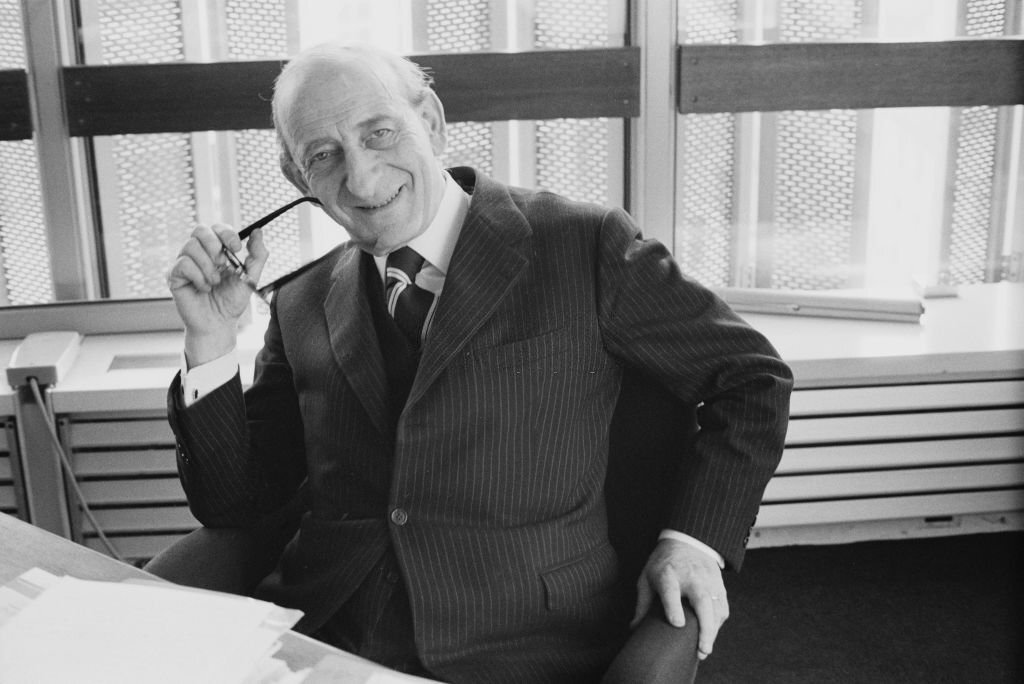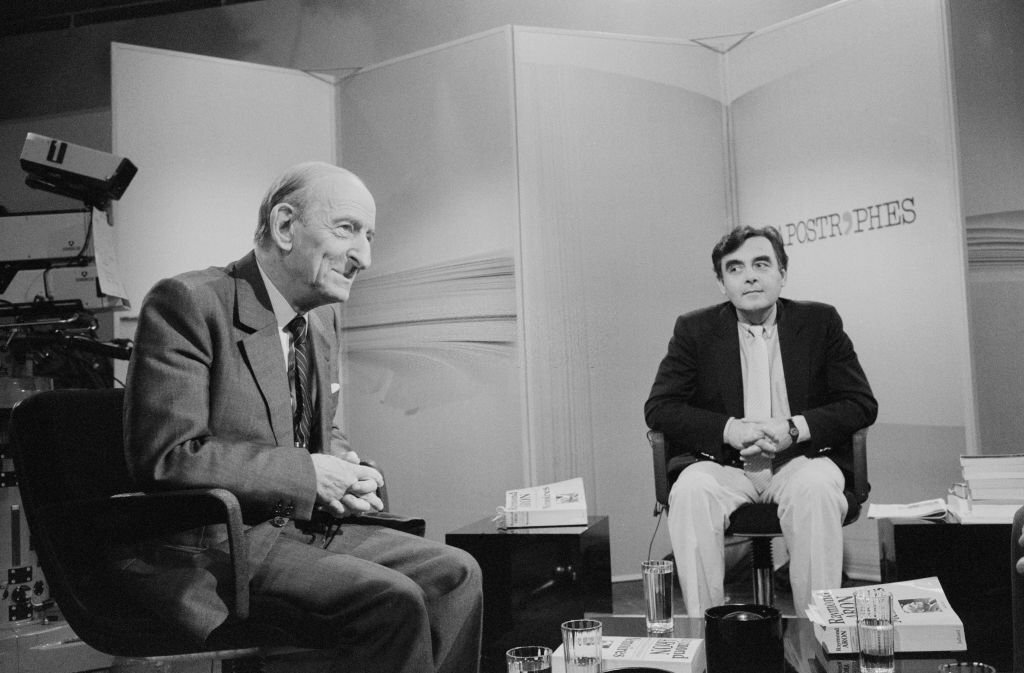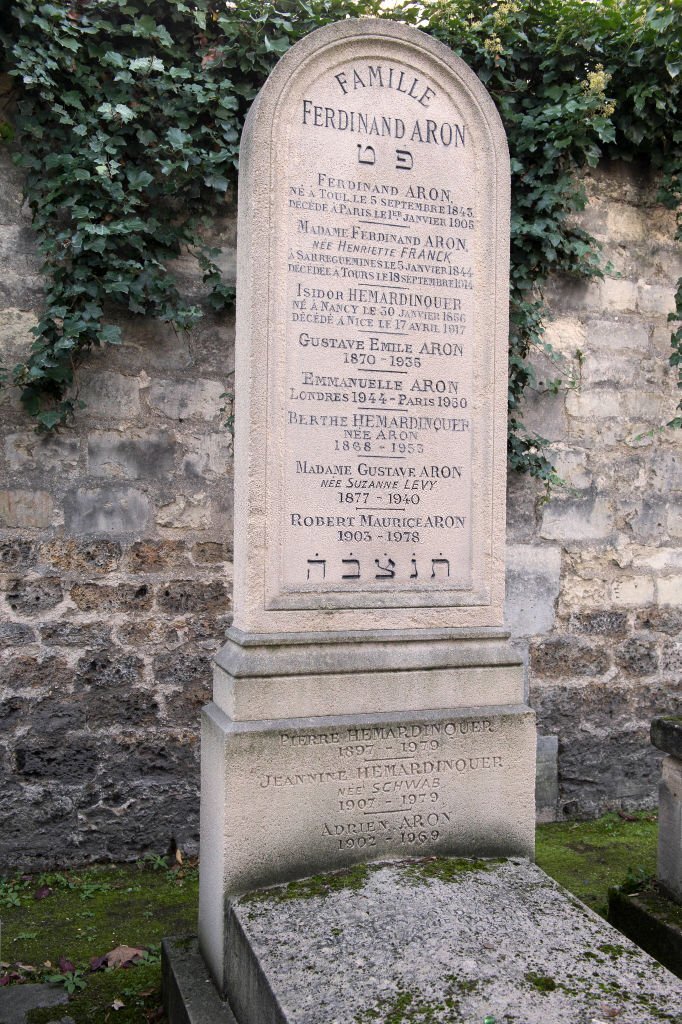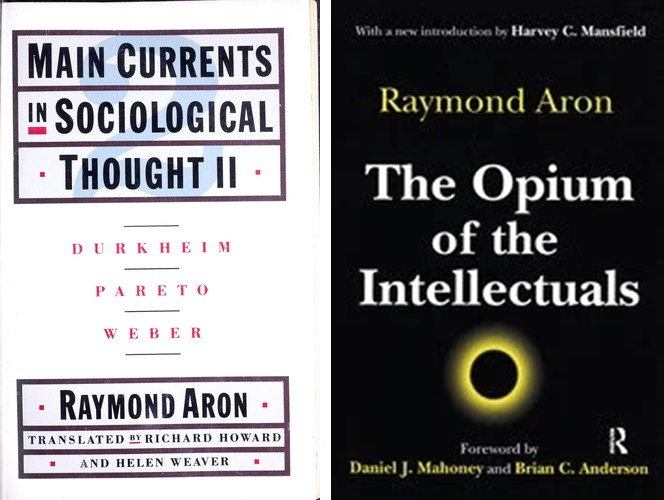Raymond Aron
[1905-1983]
French political scientist, sociologist, and journalist Raymond Aron made significant contributions to the study of totalitarianism, liberalism, communism, and international relations.
How has his career path developed? Did it really go well? Learn more about Raymond and his life in the following article.
I. Raymond Aron biography
Aron had a significant impact on the political climate in France and across Europe. He gave anti-totalitarian liberalism intellectual weight and political respectability through his writing.\

1. Who is Raymond Aron?
On March 14, 1905, he was born into a Jewish family in Paris. His high school education at Lycée Hoche in Versailles and Lycée Condorcet in Paris prepared him for admission to France's prestigious Ecole Normale Supérieure, the institution in charge of educating many of the nation's academics.
Aron met a number of people who would be influential in postwar French intellectual life at the Ecole Normale, including Jean-Paul Sartre, Paul Nizan, Daniel Lagache, and Georges Canguilhem. Later, in 1928, he won the philosophy agrégation examination held by the government.
2. Raymond Aron early career
Aron moved to Cologne, Germany, in 1930 and accepted a lecturer position at the University of Cologne after completing his required military service at Fort de Saint-Cyr. He concentrated on German thought at this time in a broad sense, including its foremost philosophers, sociologists, and political and military theorists. He started his lifelong engagement with Max Weber's work during this time. Aron correctly predicted that war would break out and left Germany in 1933 after witnessing Hitler's ascent to power and even Nazi book burnings in Berlin. At a high school in Le Havre, France, he took Jean-Paul Sartre's place. In the same year, he wed Suzanne Gauchon, and a year later, they welcomed their first child.
Aron was a professor at the University of Toulouse when World War II began, and he enlisted in the French air force. He joined General Charles de Gaulle's Free French forces in London after France fell, and from there he rose to become the editor of their newspaper, La France libre (Free France).
3. Raymond Aron Contribution
Aron is best known for his 1955 book The Opium of the Intellectuals, which argues that Marxism was the intellectual opium in post-war France rather than Karl Marx's assertion that religion was the opium of the people. Aron criticized French intellectuals for, in his book, harshly criticizing capitalism and democracy while simultaneously defending Marxist oppression, atrocities, and intolerance. Opium, according to critic Roger Kimball, is "a seminal book of the twentieth century." Aron is also well-known for his turbulent but enduring friendship with the philosopher Jean-Paul Sartre. French intellectuals adopted the adage "Better be wrong with Sartre than right with Aron."
Aron had many followers on the political left and right because he was a voice for moderation in politics, but he claimed that he personally was "more of a left-wing Aronian than a right-wing one." But he is typically described as a conservative liberal. Aron published a ton of writing on a variety of other subjects. According to historian James R. Garland, Raymond Aron "arguably stood as the preeminent example of French intellectualism for much of the twentieth century" despite being little known in America due to the breadth and caliber of his writings.
II. Raymond Aron Major Works on Sociology
1. The Opium of the Intellectuals
As a young socialist with Kantian philosophical leanings, Aron lost faith in Marxism when he realized that, despite their proclamations, most radical students were primarily comfortable bourgeois posing as revolutionaries. While on a theoretical level Aron would become a master interpreter of Marx and Marxism, his criticism typically starts with a political or sociological fact that he notices among his contemporaries. Aron's writing generally, as well as his work on Marxism, moves back and forth between theory and practice. Aron inquires as to what Marxism is as well as why Westerners and later non-Westerners find it to be so alluring.

Throughout his life, Aron explores Marx and Marxism, but his 1955 masterpiece L'Opium des intellectuels, an examination of Communism and Marxism and their influence over French intellectuals, is his most significant work on this theme. The phrase "opium of the people" from Karl Marx is obviously referenced in the title. According to Aron, French intellectuals who have a quasi-religious outlook on a Communist future use communism as their opium. Aron claims that in Communism, the "proletariat" is portrayed as a group savior who is meant to save humanity. Aron painstakingly outlines Marxism's various favorite concepts, including the proletariat, the "Revolution," and a global "Left," and reveals their mythical nature. Aron, however, also demonstrates that a Communist who still believes a particular myth will not be convinced of its falsity. Because in the Communist imagination, communism takes on the characteristics of a secular redemption that cannot be refuted by evidence.
Aron demonstrates how French intellectuals are drawn to Communism due to their excessive faith in logic and "theoretical constructs" like the Marxist "end-state," which will end all conflict and eliminate all politics. They grow impatient with flaws and look for "universalistic" answers to specific issues. Ironically, according to Aron, once the hope of transcending politics is abandoned, this causes them to disparage the actual role that reason can play within politics. Thus, intellectuals oscillate between fanatical acceptance of all reason in favor of free will and extreme faith in reason.
2. International Relations Theory
Aron describes himself as a "realist" more by nature than by conviction. However, Aron's work goes beyond the limiting academic categories of his time that describe international relations in terms of "realism" or "idealism." In Paix et guerre entre les nations (Peace and War), published in 1962, Aron illustrates how international relations should not abstract from the praxeology of political actors and their variety of motives.
This is because Aron approaches international relations with a characteristically balanced approach of his other domains. In the end, this "Last of the Liberals," as Allan Bloom would later refer to him, rejects both the idealist call for a Kantian perpetual peace and the commodified Thucydidean conception of power politics, choosing instead what Weber would refer to as a "ethics of wisdom."
Aron contends that general causes and specific causes are intertwined, drawing inspiration from Tocqueville and Montesquieu. Using E.H. Carr and Hans Morgenthau as examples, he deconstructs the overarching theories of the realist school of thought on international relations, which downplay or ignore the particular in favor of one or two overarching factors like power or national interest. Aron shows how political actors, from Nazi to Communist, are inseparable from larger causes of state behavior, reestablishing the crucial link between comparative politics and international politics. His flexible analysis rejects the prevalent Marxist interpretations of history and instead considers a wide range of specific factors, such as power dynamics, technological advancements, ideologies, and foreign policies.
Aron restores the importance of chance and uncertainty in international relations, in contrast to the excessive emphasis his contemporaries' scholars and practitioners place on technical knowledge, statistics, and abstract theories. In the context of international relations, Aron's framework reinstates the value of prudent judgment statesmanship.
3. Political Sociology
In his renowned essay, "Main Currents in Sociological Thought," Aron defined the French school of political sociology in the tradition of Montesquieu, Constant, and Tocqueville as "A school of sociologists that avoid dogmatism, are interested above all in the political, which without ignoring social infrastructures, think liberally and give free reign to the political order." Aron is successful in bringing to light, and in some cases completely reviving, a number of important sociological figures and concepts within this spirit.
In 1935, Aron published his first book, La Sociologie allemande contemporaine , which introduced Max Weber's ideas as well as the German sociological tradition as a whole to a larger French audience. Aron revived the study of Alexis de Tocqueville, a thinker who is now more revered than ever on both sides of the Atlantic, along with the philosopher Bertrand de Jouvenel and the historian François Furet. Aron discovered an antidote to French political thought, which he views as being too abstract and even too philosophic, in both German sociology and Tocqueville's writings. The interconnectedness of sociology with history, economics, philosophy, and the political sciences is emphasized in Aron's work, which also emphasizes this interdependence. Sociology is approached in a similar non-deterministic and interdisciplinary way as his other fields.
4. Industrial Society
While constantly emphasizing to his readers how intertwined the idea of industrial society was with politics, Aron made a significant contribution to the sociological framing and popularization of the idea.
Among his other works, his trilogy Démocratie et totalitarisme (Democracy and Totalitarianism), published in 1965, La lutte des classes, published in 1964, and Dix-Huit leçons sur la société industrielle, published in 1962, is one of the most comprehensive treatments of the sociology of industrial society and the conflict between capitalist and Communist industrial structures. Aron rejects the notion of the homogenization of all industrial societies and its alleged spiritually apocalyptic effects, as well as Heidegger's condemnation of modern technology and Marx's historical materialism.
In Aron's treatment, elements like the significance of war and the nature of the regime are highlighted that were frequently missed in analyses of industrial society. Although Aron recognized that the industrial age presented challenges to society, he believed that opportunities for human flourishing and technological advancement would coexist.
III. Raymond Aron Death & Legacy
1. Raymond Aron Death
On November 17, 1983, Raymond Aron passed away after returning from giving testimony in a case defending de Jouvenel, who had been falsely accused of working with the Nazis. His memoirs, which were released the same year he passed away, provide an essential portrait of the 20th century's ideological currents.

2. Raymond Aron's Legacy
In October 1983, Raymond Aron passed away unexpectedly, triggering an outpouring of sympathy and admiration. Philosophers, sociologists, political theorists, and many others from a wide range of disciplines held Aron in high regard. His obituaries were widely published in newspapers and journals, and the majority of the writers praised Aron for his achievements.
Even with a little exaggeration, it was acknowledged that the world had lost a great thinker. Since then, Aron's reputation has somewhat suffered; however, many academics have written about him, and they have understandably high opinions of him.
The literature on Aron has undergone a few additions, which show a continued resurgence of interest in his ideas. One of the most influential sociologists and political philosophers of the 20th century, Aron deserves to have his legacy preserved and for people to read his works.
IV. Raymond Aron Books

1. Main Currents in Sociological Thought
The seminal two-volume study of the sociological tradition by Raymond Aron, arguably the best piece of its kind, begins with this first volume. Aron's study is more than just a reconstruction; at its core, it engages with the fundamental question of modernity: how were the intellectual currents that emerged in the eighteenth century responsible for shaping the contemporary political and philosophical order? Aron examines the ideas and justifications of the major social thinkers in an effort to determine their responses to this question.
2. The Opium of the Intellectuals
One of the great works of political reflection from the twentieth century is Raymond Aron's masterpiece from 1955, The Opium of the Intellectuals. Aron emphasizes how political thought has the grave responsibility of telling the truth about social and political reality in all its banal inaccuracies and tragic complexities and illustrates how noble ideas can succumb to the tyranny of secular religion. The Left, the Revolution, and the Proletariat are the three myths of radical thought that Aron debunks.
Aron demonstrates that each of these concepts is ideological and mystifies rather than clarifies. In the classically restrained prose for which he is justly renowned, he also offers an intriguing sociology of intellectual life and a potent critique of historical determinism. The remarkable essay Fanaticism, Prudence, and Faith, which Aron wrote to counter Opium's detractors and elaborate on his understanding of the proper function of political thinking, is also included in the new edition as an appendix.
WHAT IS YOUR IQ?
This IQ Test will help you test your IQ accurately
Maybe you are interested
